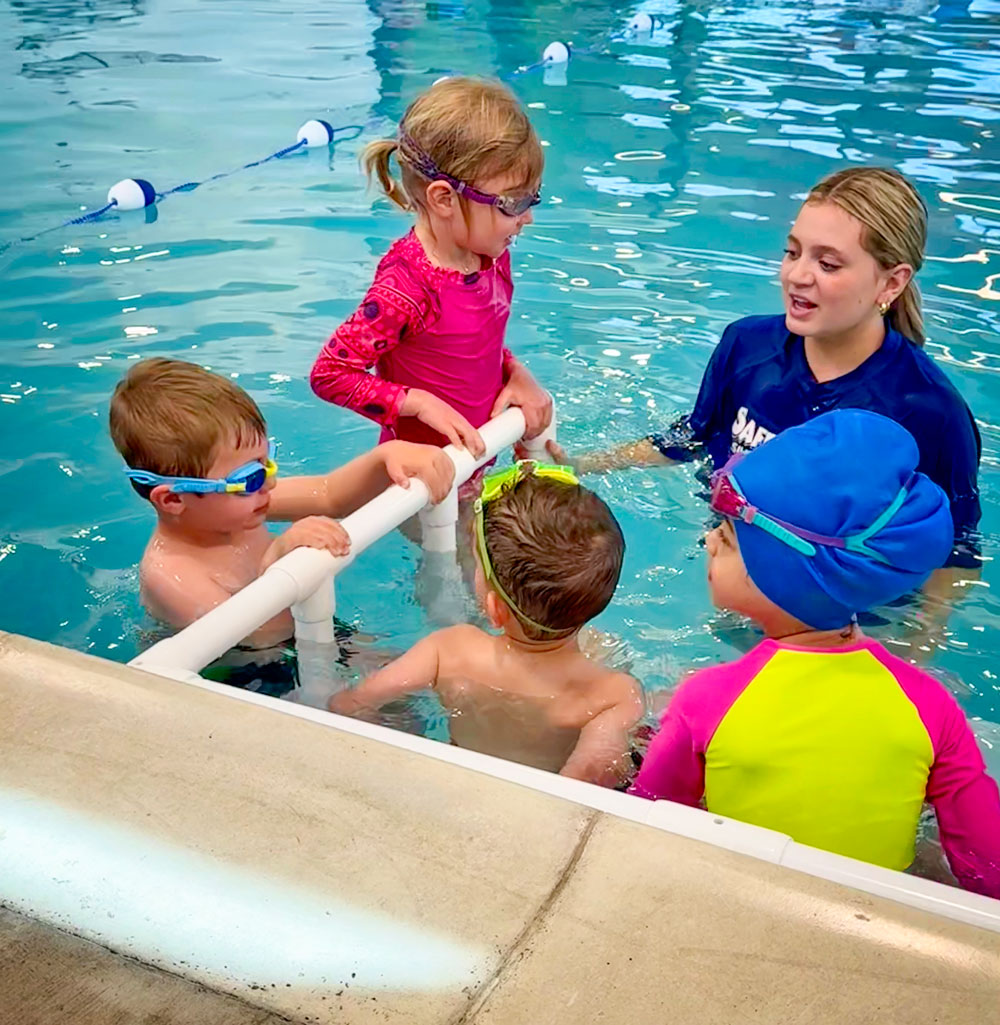Stay water smart

Former SafeSplash Castle Rock student, McKenna (pictured right), now teaches students at the same school. As an instructor, she provides water safety and skills education.
Summer is just around the corner, and that means more opportunities to be near the water. May is National Water Safety Month, making it the perfect time to address the importance of being water smart.
According to the American Red Cross, every year in the United States, an estimated 4,000 people die from unintentional drowning. That is an average of 11 drowning deaths per day. The organization encourages that every family member learn to swim to, at least, achieve skills of water competency: be able to enter the water, get a breath, stay afloat, change position, swim a distance and then get out of the water safely.
Research by Water Safety USA indicates that participation in formal swim lessons can significantly reduce the risk of drowning, particularly in children ages 1 through 4, with studies showing a reduction of up to 88%.
Lessons are just one piece of an overall water safety plan. The American Red Cross, notes that achieving water competency means employing layers of protection, which include barriers to prevent access to water, life jackets and close supervision of children, as well as knowing what to do in an emergency.
Local municipal recreation centers and private swim schools offer resources for water introduction, swim lessons, swim technique and overall water knowledge and skill.
“Water safety is a crucial responsibility of our swim school,” shared SafeSplash Castle Rock’s owner, Jaime Zilverberg. “We believe swimming is a valuable life skill that should be enjoyed for a lifetime, not just as a temporary activity,” she added.
Jaime’s school offers a first splash program starting at six months of age to help infants feel comfortable in the water and provide parents the vital skills need to help prevent drownings as well as lessons and beyond. No matter which program or school you choose for water safety and swim programs, it’s important to ensure instructors are certified and passionate about teaching and supporting swimmers of all ages.
Water safety is not just for kids. Adults should model safe water behavior, including knowing limits, taking lessons if needed, avoiding alcohol around water activities and wearing a Coast Guard-approved life jacket when boating or participating in water sports.
Put safety first and enjoy a great summer in and around the water.
Article and photos by Elean Gersack